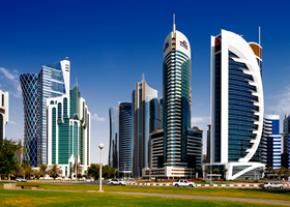Famed for its sandy beaches, shopping centres, and generous tax-free incomes, for many the United Arab Emirates (UAE) is simply Dubai and Abu Dhabi. But while there are five other emirates that make up the country, it’s unlikely that expats who aren’t involved with the extraction of oil will base themselves in Ajman, Fujairah, Ras al-Khaimah, Sharjah, or Umm al-Quwain.

Well known as global business’s gateway to the Middle East and North Africa, both Dubai and Abu Dhabi have achieved impressive feats over the past half-century since British rule. Primarily earning their great wealth through the extraction and trade of oil, in later years the two states have diversified their economies into even longer-term solutions such as international business and tourism.
And it’s at least partly for this reason that the two emirates are shown such affection by their adoptee expat inhabitants, offering anything and everything from the world’s tallest building, police women patrolling in Lamborghinis, talk of refrigerated beaches, and island paradises in the shape of the world’s land masses.
Coupled with the aforementioned tax-free incomes, expat life in the UAE is an attractive prospect, and one that has ensured that of the 9.2 million people inhabiting the country, around 75% hail from abroad, predominantly South Asian and Middle Eastern followers of Islam.
But for the many expats relocating to the UAE from a non-Muslim background, it’s certainly advisable to brush up on specific customs and beliefs. While Dubai is known to normally take a more relaxed view to foreigners causing unintended religious offence, other Emirates, and indeed their inhabitants and officials will likely take great insult from any perceived inappropriate behaviour.
